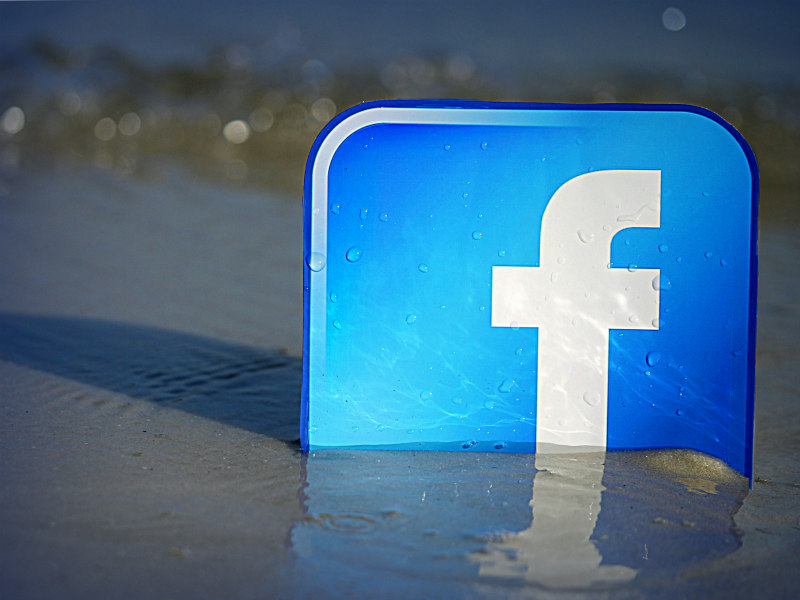Diana Marszalek 08 Oct 2021 // 12:00PM GMT

MENLO PARK, CA — Industry leaders say Facebook’s botched response to a whistleblower’s damning allegations reflects a fundamental disconnect between the social networking platform and the public.
“It was one of the worst PR days for a modern corporation that I have ever seen,” said Signal Leadership Communication principal Bob Pickard.
No stranger to scandal, Facebook is at risk of further undermining consumer trust this time around, primarily because it is focusing its efforts on discrediting Frances Haugen, an impressive former Facebook project manager who leaked information demonstrating that the company put profit before safety.
At the same time, CEO Mark Zuckerberg's actions are compounding the problem, industry watchers said. His blunders range from posting video of a sailing trip with his wife on Sunday — the same day Haugen aired her case against the company on 60 Minutes — to remaining silent on the issue until Tuesday night, when US senators called for him to speak up following Haugen's testimony on Capitol Hill that day.
“Mark Zuckerberg ought to be looking at himself in the mirror today,” Connecticut US Sen. Richard Blumenthal said. Zuckerberg’s subsequent 1,300-word post trying to undermine Haugen did little to move the needle in his favor, communicators added.
“This attempt to discredit Ms. Haugen showed me how this company doesn’t realize how disliked it is and untrusted it is. It’s almost like they don’t care,” Pickard said. “The company is so lacking in self-awareness that they are communicating with the public in a disastrous manner.”
Facebook’s current problems have been brewing since mid-September, when the Wall Street Journal published a sweeping investigative report charging that the social media behemoth knows how hate and misinformation are amplified on its platform, and that Instagram is harmful to teenaged girls' mental health, but doesn’t address the problems, because doing so could impede profits.
But it was Haugen appearing confident and compelling on 60 Minutes that made the issue a full-blown crisis for Facebook (which the next day was hit by an hours-long Facebook, Instagram and WhatsApp outage). Her testimony Tuesday before a Senate subcommittee solidified her as an advocate for greater good in the public’s eye, making Facebook’s tactic of attacking Haugen a losing proposition, industry watchers said.
The Facebook campaign is occurring under the watch of global affairs and comms head Nick Clegg, who spent Sunday morning on CNN downplaying Haugen's allegations before her 60 Minutes interview aired.
A former UK deputy prime minister, Clegg joined Facebook in 2018 when the platform was embroiled in the Cambridge Analytica scandal.
Clegg has spent much of his time at Facebook defending policies that have been viewed as helping to propagate white supremacy and right-wing conspiracy theories, leading to an advertiser boycott and, more recently, the spread of pandemic and vaccine misinformation.
Clegg’s tenure has also seen Facebook (whose crises were included in PRovoke Media’s 2018 and 2019 Reviews) face scrutiny for its handling of presidential election meddling on its platform, among the factors behind its reputation decline. In 2021, Facebook didn't even make RepTrak's list of the world's 100 most reputable companies.
Levick chairman & CEO Richard Levick said Facebook’s continual troubles are emblematic of its adherence to a fundamentally flawed approach to fixing them— feigning shock, showcasing good deeds and promising to do better, “a promise that’s never kept.”
“It's strategy is born of arrogance and panic,” Levick said. “The number one rule of crisis communications is to fix the problem and communicate it. They are not doing that. They just keep kicking the can down the road, saying critics are either ignorant or critics are wrong.
“That will never get them out of this problem,” he said.
Could this crisis, then, be Facebook’s undoing?
Not likely, experts said, given the platform's enormous global reach. It drew roughly 2.89 billion monthly active users as of the second quarter of 2021, according to Statista. Communicators, however, do expect to see some erosion of support among users and business, including the PR industry.
Some of that is due to the naturally occurring evolution of social media, which includes younger generations rebuffing Facebook as “the platform of the AARP,” Levick said. “Their market is moving on.”
But there is also the growing toxicity of the brand. “Everyone wanted to work for Facebook. And now? It’s like a tobacco or fossil fuel account,” Pickard said.
Yet James Lynch, a veteran of politics who now runs his own comms firm, said Facebook is not the only social platform navigating an environment where there are no hard-and-fast rules in place.
“This industry needs to be regulated,” Lynch said. “Facebook is not the only body here that can affect positive changes.”
When that will happen, however, remains to be seen, as lawmakers have yet to get a real handle on social media. “Congress loves to bring in executives and grill them. But when it’s time for lawmakers to make laws, it’s not happening,” Lynch said.
On the other hand, that may also be key to Facebook's ability to rebound from crisis after crisis, and likely this one too. “The best thing Facebook has going for it is Congress doesn’t know what the solution is,” Levick said.



































.jpg)


















